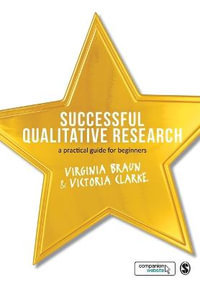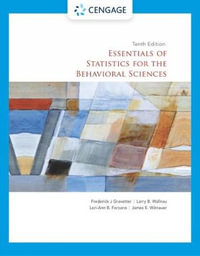"The concept of "accompaniment" is a game-changing contribution to communities of activists who seek to form meaningful and effective grass-roots connections for change. This is an important collection of works that inspire and motivate!"
- Peggy Chinn, nurse activist moderating NurseManifest.com's "Overdue Reckoning on Racism in Nursing" project.
"Research as Accompaniment: Solidarity and Community Partnerships for Transformative Action takes on critical questions that researchers working with communities must ask. By framing accompaniment as a process, and unpacking multiple influences and potential impacts, the authors highlight how accompaniment is transformational- it can influence us epistemically as scholars and in deeply personal ways as individuals. This book is a powerful resource for any of us who have struggled to illuminate the complex and meaningful turns that research with a community can take."
- Karin Cotterman, director of the University of San Francisco's Engage San Francisco and co-author of Addressing Anti-Blackness through Place-Based Work.
"What a beautiful volume of scholarship and storytelling, carefully designed to inspire and prepare health and social science researchers. Offering an introduction to research accompaniment and sharing memorable examples of sustainable (and replicable!) projects, this work illuminates practices that offer the promise of meaningful data collection, policy transformation as well as equity, justice and love."
- Ann Derouin, Professor of Nursing at Duke University and co-author of The Power of Nursing: An Innovative Course in Values Clarification and Self-Discovery.
"The authors show how accompaniment, merging with collective processes, is the methodological basis for learning as well as practice. The settings vary, but each illustrates the imperative of melding with a community for the practice of an anthropology that is useful to the people as well as informative to the researcher-activist. The discussion ranges from the theological to the theoretical. An invaluable resource."
- Paul Durrenberger, Professor Emeritus of Anthropology and co-author of Anthropology Unbound: A Field Guide to the 21st Century.
"Research as Accompaniment challenges social scientists to expand their research practice beyond the "expert-subject binary". Beginning with a conceptual framework for accompaniment, this volume provides a powerful case for centering the voices of marginalized people, recognizing that the process and outcomes of research can improve lives when done as a partnership."
- Mindy Fried, Applied Sociologist, Principal of Arbor Consulting Partners, Executive Director of Hoopla Productions, and author of Caring for Red: A Daughter's Memoir.
"Participatory research involves "accompaniment", the ways through which researchers engage equitably and respectfully with their partners in the research process. Yet, rarely has this important role been theorized or documented. In filling this gap, the grounded reflections in this book make an enormous and welcome contribution to the field."
- John Gaventa, Sociologist, past Director of Research and currently Research Fellow at the University of Sussex's Institute of Development Studies, and Director of its Action for Empowerment and Accountability Program.
"Research as Accompaniment is a significant contribution to both education and the community engagement field, as it situates community-engaged research in an accompaniment framework, providing rich models of practice while also interrogating community partnerships and research. This volume provides a guide for all in the community engagement field, through the voices of scholars, practitioners, and community members, to deepen community practice and re-imagine research through the lens of accompaniment."
- Patrick Green, Executive Director of the Center for Engaged Learning, Teaching, and Scholarship at Loyola University Chicago and Editor of Metropolitan Universities.
"The heart of all effective transformative research lies in the establishment of respectful and egalitarian relationships. This book on accompaniment as the heart of research is awesome. Don't miss out! Read this one!"
- Budd Hall, Professor Emeritus of Public Administration and the Co-Chair of UNESCO's Community Based Research and Social Responsibility in Higher Education.
"Through the presentation of practical models from many communities from throughout the world, this book pushes the prophetic edge of the community engagement field in higher education. If you are interested in authentic, reciprocal, and impactful community-based research, this is a must read."
- Kent Koth, Executive Director of Seattle University's Sundborg Center for Community Engagement and co-author of Place-Based Community Engagement in Higher Education.
"Research as Accompaniment is a must reading and a deeply refreshing contribution to the PAR literature. This timely book powerfully reminds us that PAR is a spiritual commitment, a mechanism to challenge power and a blueprint for working with indigenous communities around the world."
- Yasser Arafat Payne, Professor of Sociology at the University of Delaware and author of Murder Town USA: Homicide, Structural Violence, and Activism in Wilmington.
"This important volume illustrates how research is more meaningful and effective when it is engaged with neighbors and fellow citizens who have a stake in its findings. The art of accompaniment - the quest for mutual benefit - Is at the heart of a vision of higher education as a public good."
- Paul Pribbenow, Social Ethicist, President of Augsburg University, and co-author of Radical Roots: How One Professor Transformed a University.
"If you care deeply about people and making a positive change in the world, then this is an essential read. You will learn to co-create action-oriented knowledge in true dialogue with communities, build long-lasting relationships, and transform yourself along the way."
- Monica Ruiz Casares Yebenes, Professor in the Faculty of Community Services at Toronto Metropolitan University, Member of the American Evaluation Association's Board of Directors, and author of Access to Health Care for Undocumented Migrant Children and Pregnant Women.
"This pathbreaking volume provides proof that long-term community partnerships infused with solidarity, equality, reciprocity, dialog, and concern for social justice foster the kind of deep understanding necessary in research intending to have a real and lasting impact. Using liberation theology's accompaniment lens as a focusing device, this expertly edited collection expands upon basic concepts such as service, care, and participation but also more complex constructs such as deep listening, epistemological humility, horizontality, radical empathy, and relational responsibility, illuminating a new model for community-based participatory action research. In doing so it offers a new non-extractive research ethic-one profoundly well-suited to the problems today's social scientists-and communities-must confront."
- Elisa Sobo, Professor of Anthropology, past President of the Society for Medical Anthropology, and author of Dynamics of Human Biocultural Diversity: A Unified Approach.
























